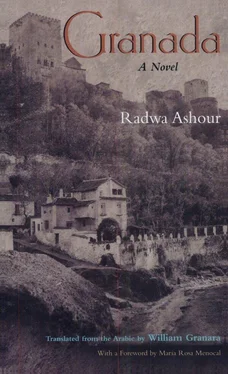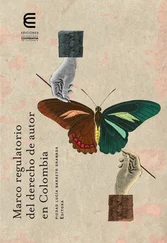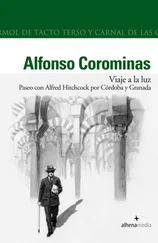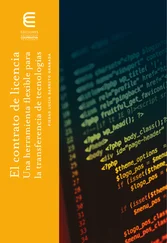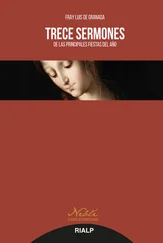Radwa Ashour - Granada
Здесь есть возможность читать онлайн «Radwa Ashour - Granada» весь текст электронной книги совершенно бесплатно (целиком полную версию без сокращений). В некоторых случаях можно слушать аудио, скачать через торрент в формате fb2 и присутствует краткое содержание. Год выпуска: 2003, ISBN: 2003, Издательство: Syracuse University Press, Жанр: Современная проза, Историческая проза, на английском языке. Описание произведения, (предисловие) а так же отзывы посетителей доступны на портале библиотеки ЛибКат.
- Название:Granada
- Автор:
- Издательство:Syracuse University Press
- Жанр:
- Год:2003
- ISBN:9780815607656
- Рейтинг книги:5 / 5. Голосов: 1
-
Избранное:Добавить в избранное
- Отзывы:
-
Ваша оценка:
- 100
- 1
- 2
- 3
- 4
- 5
Granada: краткое содержание, описание и аннотация
Предлагаем к чтению аннотацию, описание, краткое содержание или предисловие (зависит от того, что написал сам автор книги «Granada»). Если вы не нашли необходимую информацию о книге — напишите в комментариях, мы постараемся отыскать её.
Granada — читать онлайн бесплатно полную книгу (весь текст) целиком
Ниже представлен текст книги, разбитый по страницам. Система сохранения места последней прочитанной страницы, позволяет с удобством читать онлайн бесплатно книгу «Granada», без необходимости каждый раз заново искать на чём Вы остановились. Поставьте закладку, и сможете в любой момент перейти на страницу, на которой закончили чтение.
Интервал:
Закладка:
The loud but melodious music with its quick and catchy rhythms was what first caught his attention. But when he looked more closely, his eyes focused on the girl. He estimated she was no more than thirteen years old. She was small and thin and her body had not yet ripened to full maturity. Her face was a golden brown and her hair black and wavy. She had pleasant but ordinary features like many of the girls he’d seen in the souks. What was it about her that made him take notice? There was something in her eyes or her face, or maybe the combination of the two, that opened up a door for you, and you would pass from darkness to light. Or maybe you exit from the darkness of your prison and walk into freedom from confinement, and you take delight in that because you were never aware of the existence of that door that was always inaccessible to you. What was happening? he wondered. Was she one of those gypsy girls who cast spells on men and fill their minds with strange notions?
He couldn’t take his eyes off of her for the longest time, but when he did, he realized that his soul had already attached itself to her. He left the tavern but her phantom never left his side. He knew that she was dark skinned. He was certain of that, as he was of her black hair and black eyes. But from where did the colors come from? Was it the color of her dress, the same color as the henna on her palms? Was it the color of the green tattoo underneath her lower lip, or was it her dress that was green? Did the clinking of the castanets and the rhythm of the music ignite his imagination with a fire that blazed in bluish flames?
The phantom clung to him, and he whispered to himself that if he went back into the tavern and saw her again, the colors would disappear and he would return to normal. He went back in and then out, several times. He watched her, then turned his eyes away until he saw them carrying away their instruments and leaving the tavern. Just at that moment he made his way toward the older man. “My name is Hasan. I was raised in my grandfather’s house. His name was Abu Jaafar the Paper Maker, may God have mercy on his soul. I work as a calligrapher and I’m being trained to write contracts.” He didn’t stutter or hesitate for a split second. He continued, “If this girl is your daughter, then permit me to marry her.”
The man’s eyelashes fluttered, then he held out his hand to shake Hasan’s. “Bring your family to our house, and, God willing, all will turn out for the best.”
And so went Hasan, along with his grandmother, his mother, Saleema and Saad. The house wasn’t as impoverished as he’d expected. It was an old house, the kind that passed through generations. It had a fountain in the middle of the courtyard that was surrounded on three sides by arches that led into the main rooms. The women all went off into one room, and the men congregated in another, one furnished with antique carpets and throw rugs that still had their beautiful patterns even though their colors had lost much of their original brilliance. The walls were not bare but richly adorned with an antique sword in its sheath, an inscription, a pair of silver-encrusted daggers, a piece of parchment with a Quranic verse written in Kufic script, and an old banner.
Hasan and Saad sat opposite the older man and two others close to him in age. The older man told them that one was his brother and the other his cousin. There were also the two younger musicians whom Hasan figured out were the older man’s sons.
They were offered oranges and dried figs, as well as dates and raisins. Hasan said a silent prayer asking God to untie his tied tongue, but his prayer went unanswered, and Saad did all the talking. They spoke openly and freely, and so too did Saad. Then they came to an agreement and recited the opening chapter of the Quran as was the custom for such an occasion.
When they arrived back home Umm Hasan reproached her son. “You never told me that the man and his sons were musicians in a tavern!”
Hasan’s face grew sullen and his grandmother responded quickly. “The man has nothing to be ashamed of. He used to be a professional singer who performed at religious feasts and festivals, and sang about our beloved Prophet and his miracles, and about the brave feats of his cousin, Sidi Ali. Then those demons invaded our country and forbade these ceremonies. What was the poor man to do? Steal, or worse, sing the praises of the Christian monarchs?”
“I don’t know what you see in her,” protested Umm Hasan. “Her skin is so dark and greenish, and she’s as thin as a rail. The neighbors’ daughter is much prettier than she. Why don’t you let me go and ask her hand for you instead?”
Hasan darted a reprehending glance at his mother and said, “We already recited the opening chapter of the Quran, Mother. And what happened there is the word of honor amongst gentlemen. Besides, she’s the one I want.”
Umm Hasan had a pained look on her face. “God give me strength to bear should you marry the daughter of a drummer!”
Hasan’s face dropped and once again Umm Jaafar quickly intervened in an attempt to put an end to the conversation. “What’s gotten into you, Zaynab? The girl is very pleasant and sweet, and she’s still just a girl who hasn’t fully matured. You, yourself, were thinner than she when you got married. Congratulations, Hasan. May your new bride bring good fortune to you and this whole house. All our best wishes!”
A week later Hasan signed the marriage contract that his tutor drew up for him:
In the name of God the most Compassionate, the most Merciful. Prayers on the Prophet Muhammad, on his family, his followers and companions, and all his loved ones. This marriage contract has been concluded, by the Grace and Blessings of God, and in accordance with His holy law, between Hasan, son of Ali and grandson of Abu Jaafar, the Paper Maker, and Maryama, the daughter of Abu Ibrahim,for the sum of five gold doubloons, as well as the house bequeathed to the husband by his father, may God have mercy on his soul, located at Ainadamar on the outskirts of Granada, including the olive groves and vineyards surrounding the premises, extending to the estate of Muhammad Shatibi to the south, the house of Umm Saad bint El-Masoud to the north, the property of Ridwan Abu Khaleel to the east, and the mountains on the west.
In accordance with the aforementioned, this contract is enacted.
Maryama had a large chest that she owned ever since she could remember and first started to recognize things by their names. Her mother always said that it belonged to her alone, and that she would take it with her to her husband’s house the day she got married. The chest had belonged to her grandmother and was passed down to her through many generations. It was a rectangular-shaped wooden trunk engraved with birds and flowers and ornate tangles of delicate foliage. It had the colors of orange, pale yellow, and shades of pistachio and mint green. The engravings included a sequence of miniature pairs of identical birds facing one another but separated by a single rose. Each miniature was enframed in a garland of leaves. At the point where the arch of the wing touched the tip of the tail another miniature began, and the tail of each bird nearly touched the tail of the previous one. As the arch of the back ascended, it branched out and away from the arch of the other bird, and it ended where the head faces the opposite direction where you would find its rose and its twin bird. In the inverted triangle that separated the two miniatures, branches, leaves, and small clusters of flowers abounded. The composition was repeated in a weave of colors and set against an olive-green background grown darker and deeper with age.
The chest was so big that until only a few years ago Maryama could fit her whole body inside it. She used to pester her mother to let her sit in the chest, and only occasionally would the mother allow her to do so. There she sat along with the few other things in it: a porcelain jar of water from the Zamzam well her grandfather brought back from the Hejaz when he made his pilgrimage to Mecca; a black, brocaded velvet blanket; a pair of brown wooden clogs inlaid with tiny squares and triangles of shiny mother-of-pearl; two small kohl bottles, one of pure gold in the shape of a peacock, and the other silver, with a tiny, round applicator engraved in a floral design; a small ivory case; and a rare gemstone of a dark pinkish color.
Читать дальшеИнтервал:
Закладка:
Похожие книги на «Granada»
Представляем Вашему вниманию похожие книги на «Granada» списком для выбора. Мы отобрали схожую по названию и смыслу литературу в надежде предоставить читателям больше вариантов отыскать новые, интересные, ещё непрочитанные произведения.
Обсуждение, отзывы о книге «Granada» и просто собственные мнения читателей. Оставьте ваши комментарии, напишите, что Вы думаете о произведении, его смысле или главных героях. Укажите что конкретно понравилось, а что нет, и почему Вы так считаете.
